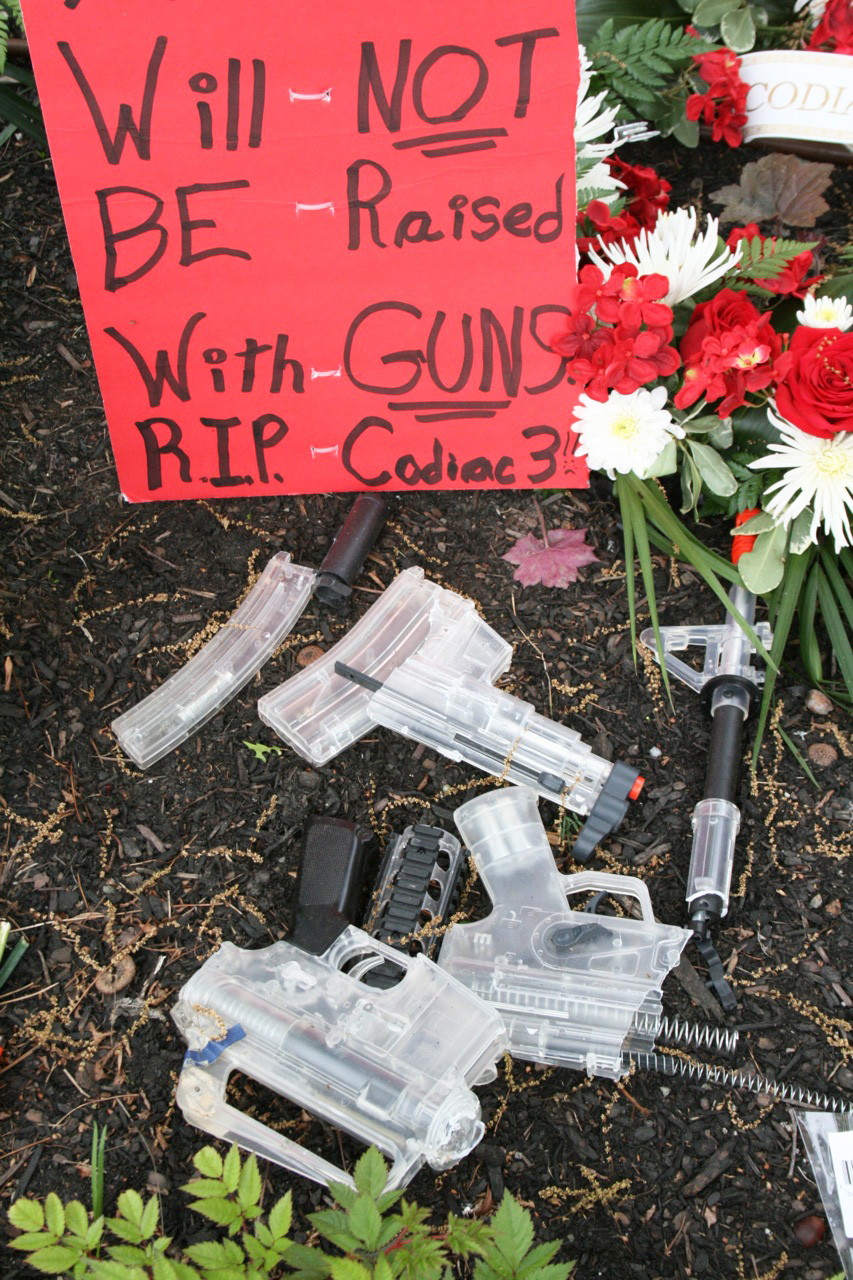On June 4, 2014 a deranged young man wandered onto the streets of Moncton New Brunswick with a small arsenal of long guns and cross bows strapped to his back. Neighbours said he had an icy and emotionless expression on his face.
When RCMP officers from the Codiac Division responded to the call, he opened fire on the police, killing three (Douglas James Larche, Dave Joseph Ross, and Fabrice Georges Gevaudan) and wounding two (Éric Stéphane Dubois and Marie Darlene Goguen).
All were described as exemplary officers by their superiors and co-workers. Constable Larche leaves behind a wife and three daughters. Constable Ross leaves a wife, a son, and another child expected in the fall, as well as his beloved police dog, Danny. Constable Gevaudan leaves behind a wife and step-daughter. Constables Dubois and Goguen are recovering from their injuries.

For the best part of two nights and a day, the gunmen held the terrified citizens of a section of the city hostage in a lockdown that closed most businesses, schools, and public transit and kept residents barricaded in their homes behind locked doors and shuttered windows.

Moncton is a vibrant bilingual and bicultural (French and English) city on the Peticodiac River where I spent several years in my youth. I visit frequently and have friends there. Like every community where mass murders or other heinous crimes are committed, Monctonians were by turns terrified, shocked, and incredulous that, “something like this could happen here.” And who wouldn’t be.

There are any number of ways that these events can be parsed and analyzed. The disturbed young man had developed a pathological hatred of authority figures and an NRA-style fetishism of firearms.

Could his increasingly erratic views have been flagged earlier and prophylactic action taken? Assistance offered? If so, by whom? Does this represent an incursion of American-style gun culture into Canada? If the Harper Conservatives had not abolished the long-gun registry, could it have made a difference? Do we need more restrictive gun regulations?

I’m not certain of the answer to any of these questions. However, after visiting Moncton this weekend and talking with friends, I do know the following. A palpable cloud of shock still hangs over the city. Monctonians responded to this tragic event with an emphatic and visceral rejection of mindless, senseless, gun-promulgated violence.

The public outpouring of sympathy for the slain officers at an impromptu memorial at RCMP headquarters on Main Street, is a stunning display of grief, empathy, and solidarity. One mother wrote, “My son will not be raised with guns. RIP Codiac 3″ above several plastic guns that had been deliberately broken. It’s clear that there is a determination that such violence will not become the face of their community. Citizens of all ages, of all walks of life, from Moncton, throughout New Brunswick, across Canada, and further afield stood united against senseless, meaningless, murder.

It is heartening that in Canada, such tragic — but extremely rare — events are not followed by calls for citizens to pack heat. Monctonians are not lobbying their government to “open carry” weapons to the many cafes that line the leafy streets of the downtown. No one believes that “guns don’t kill people.” No one thinks that mass ownership of firearms makes people and cities safer [see my article for rabble.ca, The death of innocents: Murder and guns in the USA for more on this subject].

Conflicts are not resolved at the end of the barrel of a gun. Indulging in the technology of death is not a life-affirming act. Violence begets violence.

Christopher Majka is an ecologist, environmentalist, policy analyst, and writer. He is the director of Natural History Resources and Democracy: Vox Populi.



